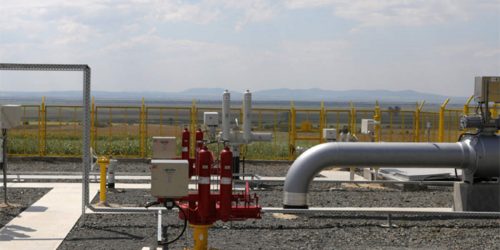Karachi — Pakistan’s apex court has allowed the government to collect a pending gas infrastructure development tax amounting to billions of dollars from fertilizer, power, chemicals and cement companies, according to the court’s verdict Aug. 13, a move that would help policymakers to use the funds to develop gas projects.
But in 2016, the companies took the battle to court and appealed in the Supreme Court against the tax. As a result, the government had not been collecting the gas infrastructure tax since 2016. According to court documents, the outstanding amount was Rupees 457 billion ($2.7 billion).
Elaborating on how the government would recover the dues, Muhammad Saeed Khalid, head of research in Karachi-based brokerage house Shajar Capital, said that the companies would be allowed to pay their outstanding dues in 24 monthly installments over the next two years.
Pakistan’s domestic gas production is currently around 3.8 Bcf/day, while demand has been around 6.2 Bcf/day in the summer and 6.8 Bcf/day during the winter months.
Pakistan currently has two operational LNG terminals — Elengy Terminal, having a capacity of 600 MMcf/d, and Gasport Pakistan Ltd., also having a capacity of 600 MMcf/d. The government currently pays $500,000/d in capacity charges on a use-it-or-lose-it basis.
The power sector accounts for 37.44% of gas consumption, industries 18.84%, fertilizer 17.06% and transport 4.84%, according to court documents.
With Pakistan turning out to be one of the fastest growing LNG markets since it first started importing in 2015, analysts say there is an urgent need to speed up building domestic gas infrastructure and import capacity expansions, which have been planned to absorb incremental inflows.
The outlook for hydrogen Asia-Pacific has become a lot more positive over the last six to 12 months, with companies from Australia to Japan stepping up efforts to formulate policies and plan projects in the hope that the clean fuel can play a big role in the energy transition process. But at this point there are probably more questions than answers. How quickly can new hydrogen projects come up? How fast can governments formulate polices? And how soon can trade flows and a transparent market place develop?
Peter Godfrey, Asia Pacific Managing Director of The Energy Institute of the UK, joins S&P Global Platts Senior Editor Sambit Mohanty in this episode of Commodities Focus Podcasts to tackle the questions around the development in Asia’s hydrogen market.







